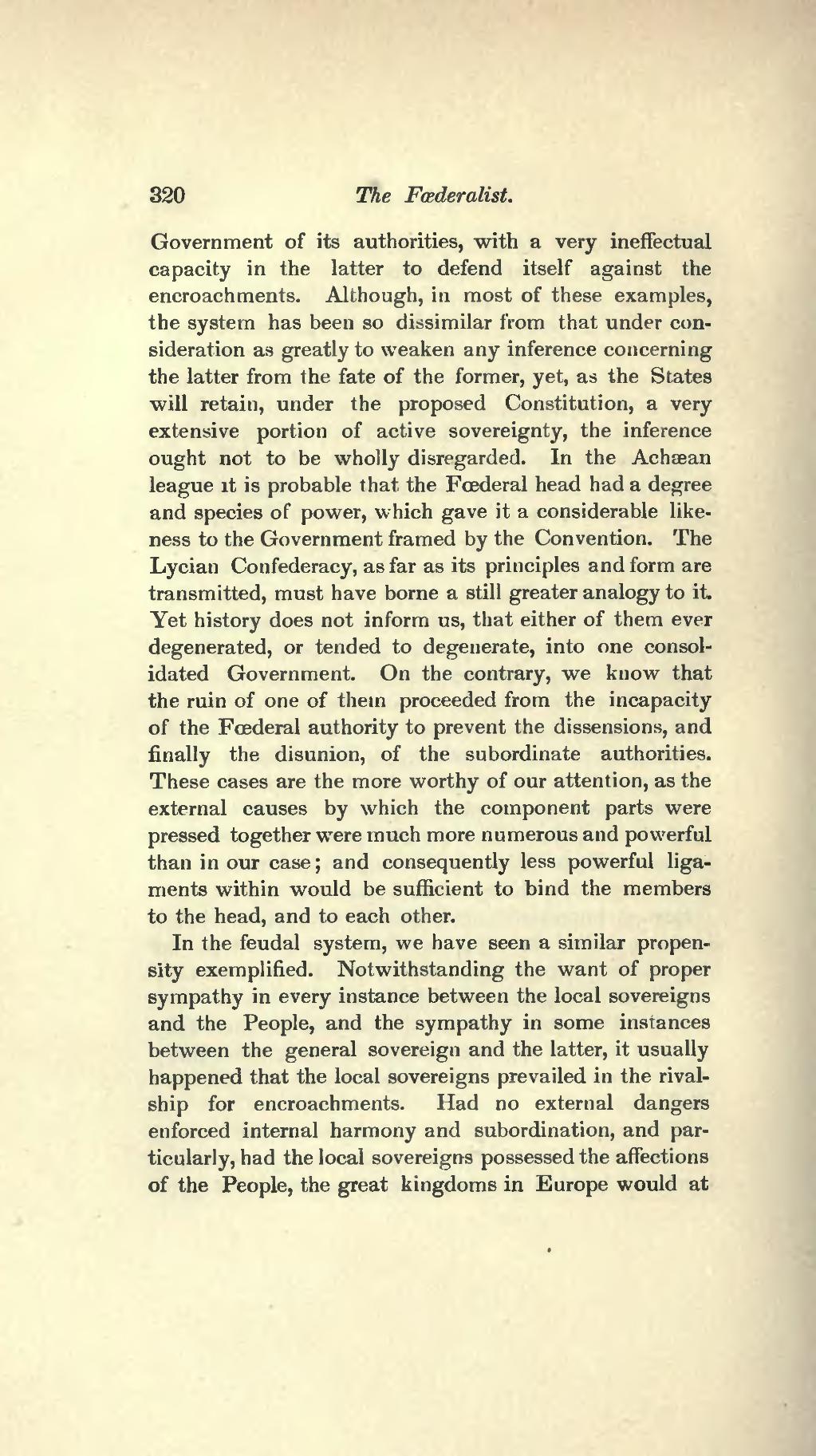Government of its authorities, with a very ineffectual capacity in the latter to defend itself against the encroachments. Although, in most of these examples, the system has been so dissimilar from that under consideration as greatly to weaken any inference concerning the latter from the fate of the former, yet, as the States will retain, under the proposed Constitution, a very extensive portion of active sovereignty, the inference ought not to be wholly disregarded. In the Achaean league it is probable that the Fœderal head had a degree and species of power, which gave it a considerable likeness to the Government framed by the Convention. The Lycian Confederacy, as far as its principles and form are transmitted, must have borne a still greater analogy to it. Yet history does not inform us, that either of them ever degenerated, or tended to degenerate, into one consolidated Government. On the contrary, we know that the ruin of one of them proceeded from the incapacity of the Fœderal authority to prevent the dissensions, and finally the disunion, of the subordinate authorities. These cases are the more worthy of our attention, as the external causes by which the component parts were pressed together were much more numerous and powerful than in our case; and consequently less powerful ligaments within would be sufficient to bind the members to the head, and to each other.
In the feudal system, we have seen a similar propensity exemplified. Notwithstanding the want of proper sympathy in every instance between the local sovereigns and the People, and the sympathy in some instances between the general sovereign and the latter, it usually happened that the local sovereigns prevailed in the rivalship for encroachments. Had no external dangers enforced internal harmony and subordination, and particularly, had the local sovereigns possessed the affections of the People, the great kingdoms in Europe would at
